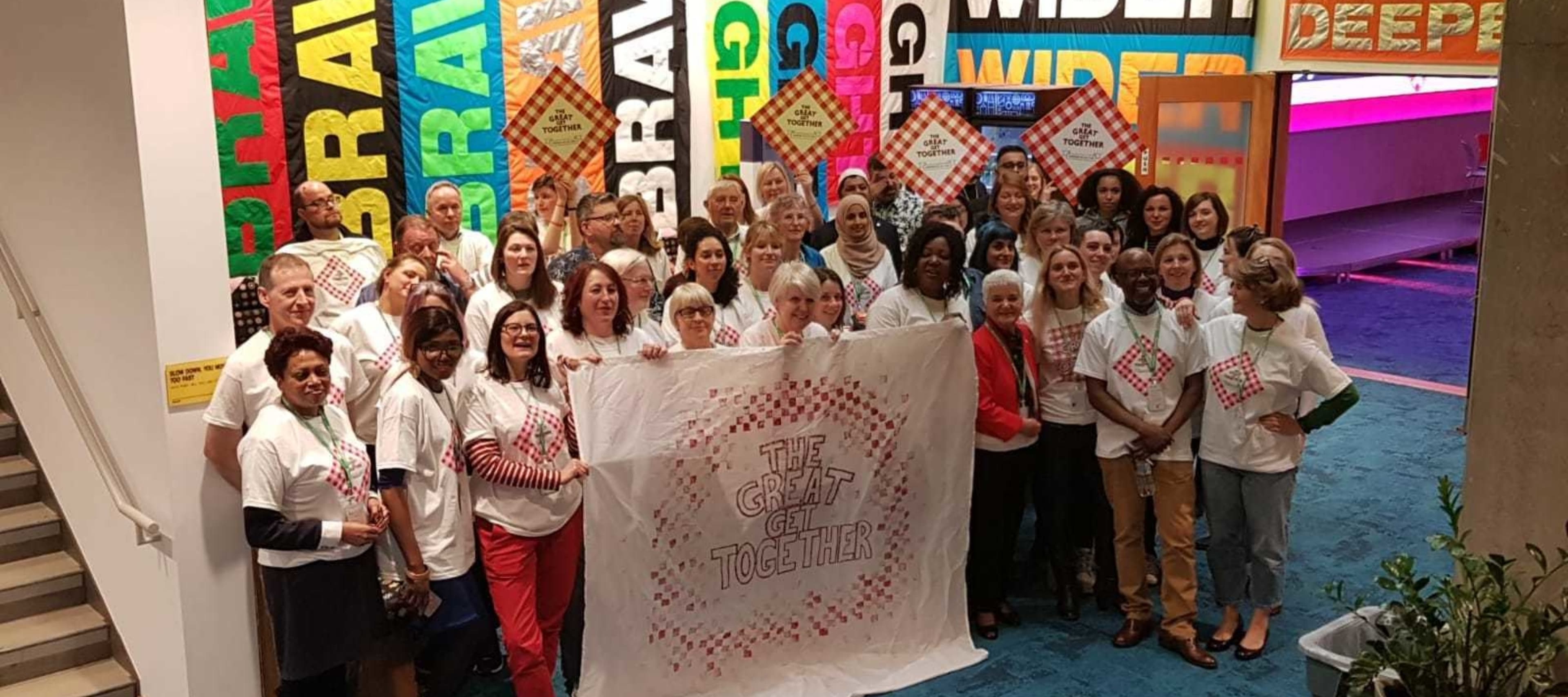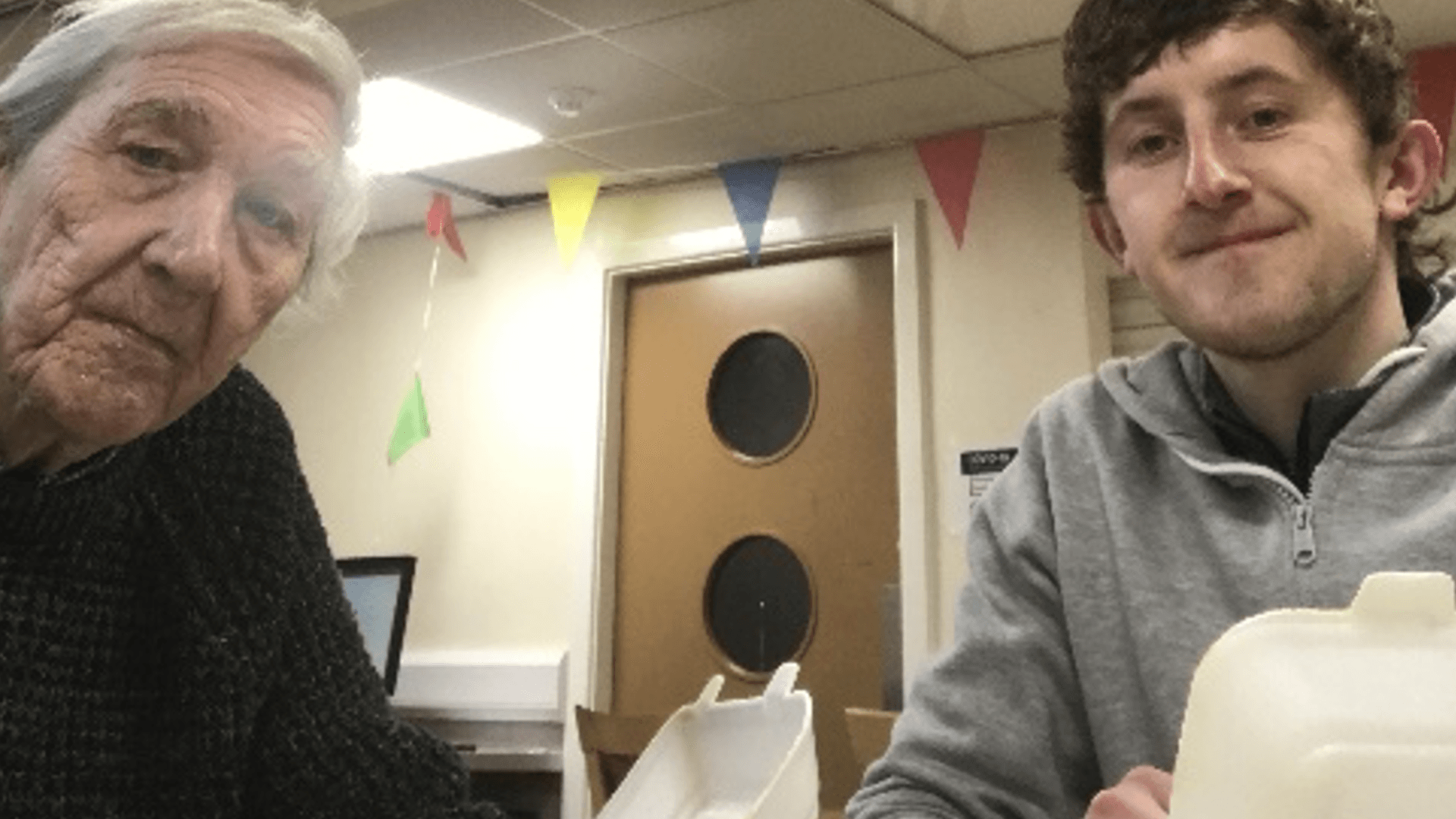
Connecting with more in common
Posted by The Cares Family on 20th June 2019
Please note: this post is 80 months old and The Cares Family is no longer operational. This post is shared for information only
By Kim Leadbeater
In June 2016 my life was torn apart and changed forever. I’m still a long way from coming to terms with what happened. When something so horrific and unbelievable occurs, everything you think you know and understand changes. My life will never be the same.
But in those hardest of times, the support I’ve received from so many people has kept me focused. And it’s kept me focused on one thing in particular: bringing people together and building strong communities where everyone has a sense of identity and belonging – always inspired by my sister Jo Cox and our shared belief in humanity and the power of human connection.
Jo was so much more than an MP – to be honest, to me this was way down the list. Jo was a friend to many people; a daughter, a sister, a wife; a mother to two fantastic children; a strong woman and a humanitarian. She believed in a better world, and she fought for it every day. She believed, as I do, in equality, inclusivity and humanity – that people should work together, side-by-side and arm-in-arm, to improve things for everybody, irrespective of our different backgrounds or beliefs.
Before entering parliament, Jo worked all over the world, in war zones and areas of extreme poverty – places where people often had little food or water and sometimes very little hope. But she was determined to help people less fortunate than herself. Having done this in many different countries, one of the main reasons Jo put herself forward to be the MP for Batley and Spen was to reconnect with her Yorkshire roots and to make a difference to the lives of people in the community where we grew up. And she did this. Even as an MP, she continued to connect with people on a very human level.
After Jo was killed, many people expressed a desire to ensure that the values she stood by, and the causes she championed, were not forgotten. That’s why we set up the Jo Cox Foundation – to help build strong, compassionate communities where everyone can feel together. This felt particularly important, and particularly poignant, given the circumstances in which my sister was killed. With division and anger still so evident on our streets, it still feels important, and poignant, today.
That’s why I was so inspired by the group of volunteers who came together in Yorkshire in the months after Jo died. Those volunteers – people from every walk of life, strangers to our family at the time but now the closest of friends – would not allow our local community to be fractured.
They are a non-political group who on the surface may appear to have little in common. They were not trained in community organising or in campaigning. We were – and we remain – a strange, somewhat dysfunctional family. But it works because we are bound by a common humanity and a common purpose: together, borrowing from Jo’s powerful phrase, we call ourselves More in Common.
But More in Common is much more than just a name. It’s a philosophy about the importance of connecting people, of reaching out across communities to bridge divides and to make a difference on issues that affect us all.
We acknowledge the changing face of our communities, where people may feel isolated, forgotten or disconnected, because those disconnections are more than just lost ideals; they have real, hard consequences – from physical and mental ill health, to loneliness and, yes, extremism, hate crime and violence too.
That’s why our group is seeking to make our villages, towns and cities more compassionate places, where everyone feels as one because everyone shares something: a space, a neighbourhood, a community.
Together, this group of people organises events to bring people closer. In three years, 300,000 people have been part of those community activities – barbecues, picnics, sports days, concerts, afternoon teas, Iftars and street parties – through The Great Get Together. Friendships have been formed, bridges built and communities united. Football and rounders teams have been created. Relationships have blossomed. Our local vicar and imam have become the best of friends: they now go into schools together to talk about the More in Common principle.
This has been quite a journey for me personally. Because like those volunteers who have given so much to what they believe in, I am not a trained community organiser either. I didn’t ask for the job of bringing people together, or of carrying the flag for closer, better connected communities. But my family and I have felt the pain of the alternative – of broken dialogue and of the consequences of that disconnection. As a country, we can’t continue to let so many people feel marginalised or ostracised. Now, more than ever, we need to fix our broken connections and re-state our belief that we all have more in common than that which divides us.
Kim Leadbeater is an ambassador for the Jo Cox Foundation which was set up after the murder of her sister, Jo Cox MP. She chairs the West Yorkshire More In Common volunteer group and is spokesperson for The Great Get Together, an annual weekend of community events across the UK. She is a self-employed fitness professional and former lecturer in physical activity and health.
This article is part of the pamphlet Finding connection in a disconnected age: stories of community in a time of change, published in partnership with Nesta.


